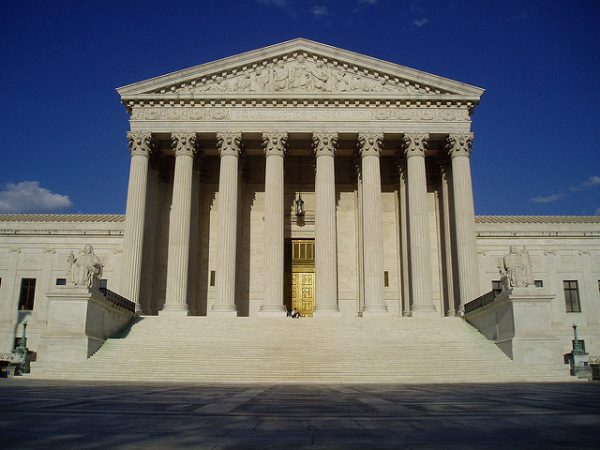
Brett Kavanaugh’s recent nomination for Supreme Court Justice faces much opposition from Congressional Democrats and other progressive political groups. These groups express concerns over a possible overturning of Roe v. Wade, redaction of climate change policies, and implementation of more punitive criminal justice policies. This political contention is crucial, as Supreme Court justices and their rulings can have far-reaching impacts. One area where the Court has been highly influential is shaping how colleges and universities consider applicants’ racial identity during their admissions decisions.
In the 1960s and 1970s, several colleges voluntarily implemented admissions programs designed to boost the presence of underrepresented racial minorities and women within their student bodies. These policies became known as “affirmative action,” a highly politicized issue since its inception. During the 1978 case, Regents of the University California v. Bakke, the Supreme Court ruled against the use of racial quotas and thresholds, but Justice Lewis F. Powell stated that pursuing “diversity” is a constitutional goal. His written opinion affirmed colleges’ right to pursue a diverse student body and therefore consider applicants’ race in admissions, albeit with several considerations and under a standard of “strict scrutiny.”
- Ellen C. Berrey. 2011. “Why Diversity Became Orthodox in Higher Education, and How it Changed the Meaning of Race on Campus.” Critical Sociology 37(5): 573-596.
- Lisa M. Stulberg and Anthony S. Chen. 2014. “The Origins of Race-Conscious Affirmative Action in Undergraduate Admissions: A Comparative Analysis of Institutional Change in Higher Education.” Sociology of Education 87(1): 36-52.
- Kelly Carr. 2018. The Rhetorical Invention of Diversity: Supreme Court Opinions, Public Arguments, and Affirmative Action. Michigan State University Press.
Since Bakke, The Supreme Court has ruled on affirmative action in cases such as Gratz v. Bollinger in 2003, Grutter v. Bollinger in 2004, and Fisher v. University of Texas, which appeared before the Court in both 2013 and 2016. In each instance, the “diversity” rationale in the Bakke ruling was upheld; colleges have been allowed to consider race in admissions under certain conditions. Yet, several scholars note that prioritizing “diversity” often ignores issues regarding privilege, access, and racial inequities in America. The Supreme Court inspired a defense of race-based policies in admissions for the sake of promoting a cosmopolitan, worldly, “diverse” college experience. By contrast, the original proponents of affirmative action highlighted the need to address pervasive racial inequalities in America, inequalities that persist today.
- Wendy Moore and Joyce Bell. 2011. “Maneuvers of Whiteness: ‘Diversity’ as a Mechanism of Retrenchment in the Affirmative Action Discourse.” Critical Sociology 37(5): 597-613
- Mario L. Barnes, Erwin Chemerinsky, and Angela Onwuachi-Willig. 2015. “Judging Opportunity Lost: Assessing the Viability of Race-Based Affirmative Action after Fisher v. University of Texas.” UCLA Law Review 62: 271-305.
- Ellen Berrey. 2015. The Enigma of Diversity: The Language of Race and the Limits of Racial Justice. University of Chicago Press.
- Candis W. Smith and Sarah Mayorga-Gallo. 2017. “The New Principle-Policy Gap: How Diversity Ideology Subverts Diversity Initiatives.” Sociological Perspectives 60(5): 889-911.
The history of race-based policy and the Supreme Court illustrates how the Supreme Court justices can shape public policies and social problems. It is likely that anti-affirmative action lawsuits will appear before the Supreme Court again (see Margaret M. Chin and Syed Ali’s recent TSP feature on race, merit, litigation, and school admissions procedures). For now, it is unclear whether the Supreme Court will continue to rely on Bakke or turn to a different rationale in the future. Thus, as the nomination and confirmation process for the next Supreme Court justice plays out, we can be sure that many people will be keeping a close eye on proceedings.

Comments